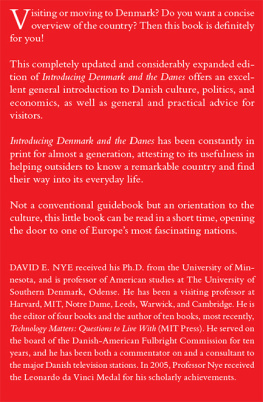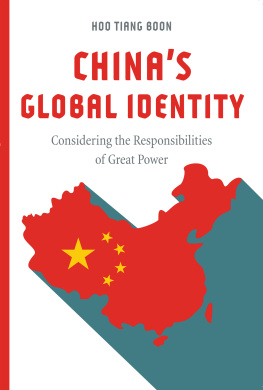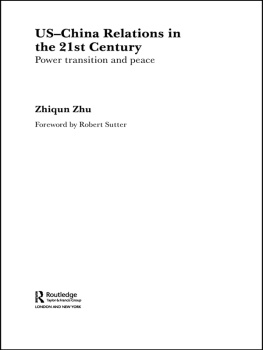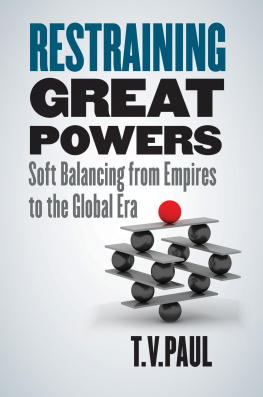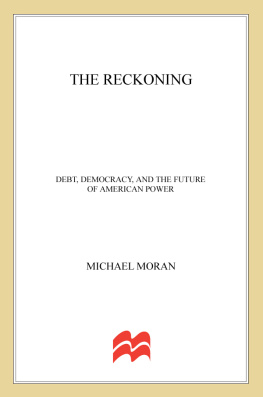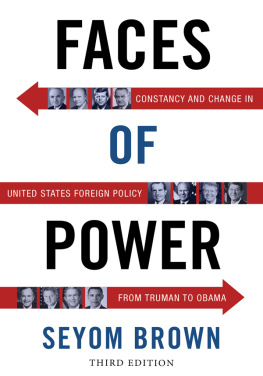BOUND TO LEAD
-i

[Thispageintentionallyleftblank.]
-ii
BOUND TO LEAD
The Changing Nature of American Power
JOSEPH S. NYE JR.
Basic Books A Member of Perseus Books, L.L.C.
-iii
LibraryofCongressCataloging-in-PublicationData
Nye, Joseph S.
Bound to lead: the changing nature of American power/ Joseph S. Nye. Jr.
p. cm.
Includes bibliographical references.
ISBN 0-465-00177-7 (cloth)
ISBN 0-465-00744-9 (paper)
United States--Foreign relations--1945- World politics--1945- Power (Social sciences). 4.Geopolitics--United States--History--20th century. I. Title.
E840.N94 1990
973.92--dc20 89-43099
Copyright 1990 by Basic Books, A Member of Perseus Books, L.L.C. Preface to the paperbackedition copyright 1991 by Basic Books.
All rights reserved. Printed in the United States of America. No part of this book may bereproduced in any manner whatsoever without written permission except in the case of briefquotations embodied in critical articles and reviews. For information, address Basic Books, 10East 53rd Street, New York, NY 10022-5299.
Designed by Vincent Torre
Printed in the United States of America LP
-iv
To Bob Bowie, Stanley Hoffmann and Bob Keohane great teachers, critics, friends -v
[Thispageintentionallyleftblank.]
-vi
Contents
PREFACE TO THE PAPERBACK EDITION |
PREFACE |
Introduction The Debate About Decline Critical Questions | Prior Debates | Does It Matter? |
|
PART I 1. Power Transitions Power | Balance of Power | Hegemony in Modern History |
|
| 2. The British Analogy How Strong Was Great Britain? | The Decline of British Power | Britain and America: Major Differences |
|
| 3. The Postwar Balance of Power Balance or Hegemony? | The Vanishing World War II Effect | Myths of American Hegemony | Successes and Failures | Balance of Power in the 1990s |
|
|
|
-vii
PART II 4. Communist Challengers The Soviet Union | China | Conclusion |
|
| 5. Allied Challengers The European Community | Japan |
|
|
|
PART III 6. The Transformation of Power Interdependence and Changing Politics | Power Diffusion | Power Revisited |
|
| 7. Domestic Challenges Economic Sclerosis? | Competitiveness | Political Sclerosis? |
|
| 8. Future Worlds and American Choices Four Visions of the Future | American Interests and a New Strategy | Geopolitical Balance | An Open International Economy | Institutions to Govern Interdependence | Conclusions |
|
|
|
NOTES |
INDEX |
-viii
Preface to the Paperback Edition
In our planet's geology, the great tectonic plates shift slowly until a tension builds that weexperience as an earthquake. World politics is sometimes similar. For the last forty years, worldorder rested on the seemingly stable bipolar structure of power that followed World War II.However, economic, social, and political strains were building beneath the surface. The firstearthquakes were felt with the Eastern European revolutions of 1989. And it is unlikely that allthe tremors are over. The "second Russian Revolution" is still in its early stages. Foretelling itsshape a decade from now is as difficult as it would have been in 1789 to imagine the future ofFrance.
Saddam Hussein's invasion of Kuwait in August 1990 was another major tremor. Ironically,Saddam correctly appraised the waning power of his Soviet ally, and in a February 1990 speechin Amman, Jordan; he described the United States as the country that "will maintain itssuperiority as a superpower without an equal to compete with it." Yet he drew the conclu-
-ix
sion that he could safely attack Kuwait. Consistent with the diffusion of power described inchapter 6, the nature of the post-Cold War world order remains fluid and full of surprises.
A happier sense of surprise was conveyed by Czech President Vaclav Havel when he addressedthe American Congress. Remarking on the rapid changes in the world, the former playwright saidthat four months out of prison and two months into his presidency, he observed that evenplaywrights, who have to cram a whole human life or an entire historical era into a two-hourplay, could scarcely understand the contemporary rapidity of political change. "And if it gives ustrouble," Havel continued, "think of the trouble it must give to political scientists who spend theirwhole lives studying the realm of the probable."
Several significant changes have occurred since this book was first published in April 1990, butfortunately they are consistent with its main thesis. Soviet power has declined and its empirecollapsed more rapidly than expected, but that is an acceleration of the trend described inchapter Germany has reunified much more rapidly than expected, but the key question, asexplained in chapter 5, remains the pace of European integration. Alone, a unified Germany remains only one- quarter the size of the United States. The American economy slipped into arecession that will produce gloomy economic numbers for a time, but dips in the business cycleare to be expected. Recession is not a good indication of long-run trends unless it leads toprolonged depression.
The American response to the Persian Gulf crisis -x
demonstrated, as this book argues, that the United States remains the only country withsignificant hard and soft power resources. But the long-term effects of the Gulf crisis depend lessupon those American resources than upon the lessons that the American public draws from theexperience. History suggests caution, for in the 1920s and the early 1970s, the American publicchose not to make use of its formidable power resources for international leadership. Then asnow, the key uncertainties about America's future role in the world revolved around domesticpolitics.
Next page


